Learn the symbolism of Ya’akov wrestling with God against the “self” and overcoming and receiving a new name in contrast to Esau who only suppressed his bitterness and thus carried it down though his lineage and the ages.
Teaching For Shabbat of December 14th, 2024
(Donate and support this Ministry by clicking here)
Torah: Genesis 32:4-36:43
Haftarah: Obadiah 1:1-21
Vayishlach (וַיִּשְׁלַח) — Hebrew for “and he sent,” it the first word of the parashah and the eighth weekly Torah portion (פָּרָשָׁה, parashah) in the annual cycle of Torah readings. The parashah covers Genesis 32:4–36:43 and tells of how Jacob reconciles with Esau after wrestling with a “man”. The prince Shechem rapes Dinah, whose brothers sack the city of Shechem in revenge. In the family’s subsequent flight, Rachel gives birth to Benjamin and dies in childbirth.
Torah Parashah Vayishlach Summary
Genesis 32:4-36:43
Jacob returns to the Holy Land after a 20-year stay in Charan, and sends angel-emissaries to Esau in hope of a reconciliation, but his messengers report that his brother is on the warpath with 400 armed men. Jacob prepares for war, prays, and sends Esau a large gift (consisting of hundreds of heads of livestock) to appease him.
That night, Jacob ferries his family and possessions across the Jabbok River; he, however, remains behind and encounters the angel that embodies the spirit of Esau, with whom he wrestles until daybreak. Jacob suffers a dislocated hip but vanquishes the supernal creature, who bestows on him the name Israel, which means “he who prevails over the divine.”
Jacob and Esau meet, embrace and kiss, but part ways. Jacob purchases a plot of land near Shechem, whose crown prince—also called Shechem—abducts and rapes Jacob’s daughter Dinah. Dinah’s brothers Simeon and Levi avenge the deed by killing all male inhabitants of the city, after rendering them vulnerable by convincing them to circumcise themselves.
Jacob journeys on. Rachel dies while giving birth to her second son, Benjamin, and is buried in a roadside grave near Bethlehem. Reuben loses the birthright because he interferes with his father’s marital life. Jacob arrives in Hebron, to his father Isaac, who later dies at age 180. (Rebecca has passed away before Jacob’s arrival.)
Our Parshah concludes with a detailed account of Esau’s wives, children and grandchildren; the family histories of the people of Seir, among whom Esau settled; and a list of the eight kings who ruled Edom, the land of Esau’s and Seir’s descendants.

New Studies for Deeper Understanding…
For further Dvar Torah study on parashah “Vayishlach”, please enjoy the latest below video teaching… Listen and learn from Rabbi Isaac as he takes your understanding to an even deeper level! Enjoy and be blessed!
TORAH FOR YOUR CHILDREN…
For a simple cartoon summary of the Torah parashah for your children we recommend the following video below created by G-dcast:
Haftarah (Prophets) Summary
Obadiah 1:1-21
This week’s haftorah mentions the punishment of Edom, the descendents of Esau, whose conflict with Jacob is chronicled in this week’s Torah reading.
The prophet Obadiah, himself an Edomian convert to Judaism, describes the punishment destined for the nation of Edom. The Edomites did not come to Judea‘s aid when she was being destroyed by the Babylonians, and even joined in the carnage. Many years later the Edomites (the Roman Empire) themselves destroyed the Second Temple and mercilessly killed and enslaved their Jewish cousins.
Though the Roman Empire was one of the mightiest to ever inhabit the earth, the prophet forewarns: “If you go up high like an eagle, and if you place your nest among the stars, from there I will bring you down, says the Lord. . . And the house of Jacob shall be fire and the house of Joseph a flame, and the house of Esau shall become stubble, and they shall ignite them and consume them, and the house of Esau shall have no survivors, for the Lord has spoken.”
After describing the division of Esau’s lands amongst the returning Judean exiles, the haftorah concludes with the well known phrase: “And saviors shall ascend Mt. Zion to judge the mountain of Esau, and the Lord shall have the kingdom.”
We hope these weekly Torah teaching bless you in your spiritual understanding and growth! As we are solely supported by your Tzedakah charity, please consider supporting this ministry for the continued spread of Truth by giving a love offering here.
Also if you have a need for prayer, please write us and let us know how to pray for you and we feel privileged to be intercessors in prayer for all our worldwide family!
Don’t forget to…
– GO to our YouTube channel and…
– LIKE the videos
– SUBSCRIBE to our channel
– SHARE our YouTube channel
– SUPPORT our Worldwide outreach
– FOLLOW us on Instagram
– FIND us on Facebook, as well as…
– SHINE THE LIGHT by spreading our website: https://www.calledoutbelievers.org with your family and friends on Facebook as well as your other Social Media platforms!
Torah Parashah teaching with video and audio and illustrations by Rabbi Isaac. © Assembly of Called-Out Believers. Use by Permission.
Website: www.CalledOutBelievers.org



One Comment
Where can I find references to Esau’s insincerity about having forgiven Jacob and that he was planning revenge and still held bitterness against Jacob?